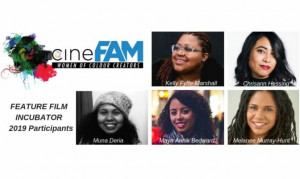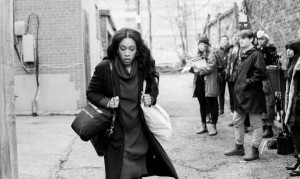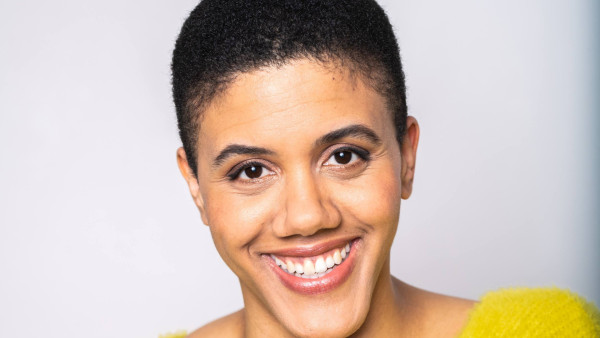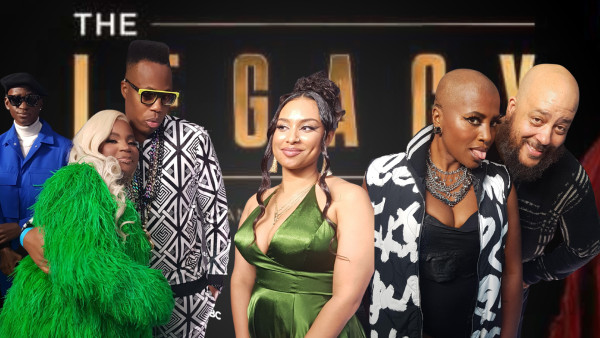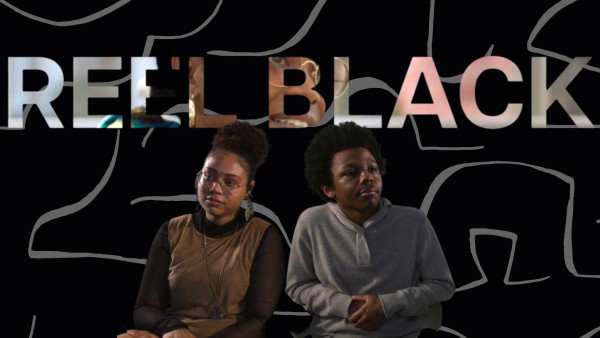Showrunner Floyd Kane aimed to cast a Black Canadian actress in the role, which would be a first for a Canadian primetime drama. Fast forward to March 6, 2019 when Diggstown premiered, starring former General Hospital star and Alvin Ailey American Dance Theate-trained dancer Vinessa Antoine. As corporate-turned-Legal Aid lawyer Marcie Diggs, the Toronto-born actress brings a layered and refreshing take on what a leading lady can be.
I recently spoke with Antoine about the reception to Diggstown, stereotypes and tropes of Black women on TV, mental illness, and so much more. Here’s a bit of our conversation:
What has been the reception you’ve received now that Diggstown has premiered? There was so much anticipation, and now it’s here!
So far it’s been really good, I mean, I’ve been on social media and responding to people’s tweets and comments. It’s amazing to hear all of the people that talk about how important it is to see the representation of Black women on screen. A lot of people were like, “This moved me so much,” “I never saw this growing up,” and then the other part was just everybody, talking about how much they loved the music and everything, so it’s been nice.
And I think with a show like this, it’s great to just have a well-crafted show — bonus points for the way it speaks to young Black women like myself. When we first meet Marcie, I’m seeing this Black woman surfing and doing her thing, and I have never seen that before. I know in previous interviews with Floyd Kane, he shared that this was deliberate. What other parts of Marcie are we going to see that show her depth or how multifaceted she is as a Black woman?
That was one of the first things I read in the script, the surfing. And right away, I knew that this was going to be different because I myself also have never seen — I mean, we rarely even see Black women swimming [on television], so to be surfing, I thought ‘She’s for sure different.’ Then, as I started to dive deeper into the character and develop her, you know — the difference between her and some of the other strong Black women characters we see on TV is that for a long time we’ve been seeing this very sharp, powerful, sometimes angry Black woman, and a lot of times it’s totally plausible and it works. I think what makes Marcie different is that she can go there if she needs to, but I think it’s her Canadian side, honestly, where she allows herself to be a lot more vulnerable, and her approach with people comes from a much more kinder place, I think. She’s not the ball-buster, she’s more like, ‘Let me give you the benefit of the doubt of being a good person.’ But if she realizes this route isn’t working, then she goes there.
I think that’s really refreshing — we can look at stereotypes and tropes of Black women like the Strong Black Woman and how damaging that can be to our mental health. We see it with characters like Olivia Pope and Annalise Keating and it can be armour for us, but it was refreshing to see Marcie. And I think it’s going to challenge stereotypes that people see of Black women on TV and carry into real life.
Big time. I’ve even had a couple of people tweet that they’re used to seeing me on TV playing a different character [Antoine played Jordan Ashford on General Hospital], and they’ve really latched on to this idea of kicking ass — like “Black women kicking ass! I can’t wait to see you kick ass!” And someone said “She’s great — I love Marcie, I love the show. Waiting for her to kick ass!” And I’m just like, maybe she doesn’t kick ass! We don’t always have to put on that hard armour. For me, anyways, as a human being, there are times I have a hard time getting out of bed, let alone going out and kicking ass!
Right! Because sometimes I’m like. “I’m tired — can I just be tired today? Is that OK?”
Yes! My kids were up all night, I don’t even know what my place is in the world, my hair’s not working, could I just chill for a second?
I really think it’s going to shake things up for some people. And another thing I loved in the pilot was right after the opening surfing scene, we see Marcie at her mom’s, getting her hair done — and I saw Marcie laying her edges with the toothbrush. Then later on, we see that church scene that I know has been resonant for a lot of people, just to see jubilant Black people gathering. Can we expect to see more of those intimate parts of Black life or Black Canadian experiences on the show?
There are a couple more nuggets, but the show doesn’t only focus on North Preston [part of Halifax, and Canada’s oldest and largest Black community]. We do focus on each individual case which really rounds out the show in terms of representation. Each episode will dive into a different community, whether it be the Indigenous community, or an Asian community, or a Middle Eastern community, so that I think is going to make the show even more special, where people get to see other parts of Canada that are rarely represented in a non-stereotypical way.
One of the things I thought about in watching some of these nuggets is that it felt like part of an evolution that we’re starting to see in art, where we’re starting to see the explanatory comma [the idea that cultural references need to be defined and given context for people outside of that culture] be removed — like when Beyonce did Coachella with the heavy Southern and HBCU references where she didn’t explain but let people Google if they didn’t understand. Do you think we’re getting to a place where we don’t have to cater to the white gaze?
Oh, for sure — and I think it’s coming as a result of the youth. I have two sons, one 16 and one 12, and I myself will try to explain something to them, and they are looking at me like I have 10 heads, like “DUH, Mom — we know! We get it! We’re just waiting for your generation to die off so we can live our lives!”
The kids are over it! And I think another thing is the diversity we’re seeing not just in front of the camera, but behind it — the directors and writers and people fully crafting shows. I was reading a Teen Vogue article that featured a Black model talking about the lack of makeup artists and hairstylists that are knowledgeable about working with Black people. What have been some of your experiences throughout your career in that respect?
This feels like honestly, we’re gonna have to have a whole other interview just for this (laughs). Oh my gosh. Well, I’ll start like this: every job that I’ve ever worked my entire life, whether it was a dance job, commercial job, film, TV, I've certainly had a negative experience with my hair. I’ll say that. And that’s across the board.
Makeup, I find, has gotten a lot better because the brands have really opened up. As far as hair is concerned in this business, there is a beautiful opportunity and interesting niche that has opened up for Black barbers and Black hairstylists. The people who have been doing hair for the last 10, 20, 30 years have never had to learn our hair. We come in as the recurring, the guest star, the best friend, and we’re usually passed over to their assistant because we’re just coming in for a day or two or three. Most of the time, it goes like this: the night before, I’m learning lines whilst doing my own hair or going to my own hairstylist to pay my own money. Most men go to their own barber and get a cut or a lineup the night before. We pay our own money, we take our own time, and we’re not being compensated for it.
Fast forward now, we’re not coming in as the best friend — we’re coming in as the lead. There’s a niche that’s opened up, and it would be wonderful if we could communicate a way so that people who understand our hair to be welcomed into the union, and to have some kind of program so that some kind of learning can happen, because right now, there’s a very big gap.
One of the other things I thought about in terms of opportunity and the show, is how it touches on mental illness and suicide in Black families, with the story around Marcie’s aunt [Rolanda Diggs, played by Karen LeBlanc]. I don’t know if there’s been specific reaction around that yet, but what do you think that storyline might do to open up conversations among viewers, specifically with Black viewers?
It’s interesting — people have responded and said how much those scenes touched them, just seeing Marcie talk about it with her dad or her unwillingness to talk about it, really, and then her breaking down and really coming to terms with what’s gone on. It’s interesting because people are moved by those scenes but still finding it difficult to talk about the reality of it. No one has really brought it up in that way, they just say it touched them and how much they cried with Marcie, but not really talking about what’s going on in a lot of families. Mental health is a real thing, and I think for a lot of families — and without generalizing, a lot of Black families and communities — going to therapy is kind of taboo to talk about. I think it’s going to be an interesting conversation as we get more into the series.
This interview has been edited for length and clarity.
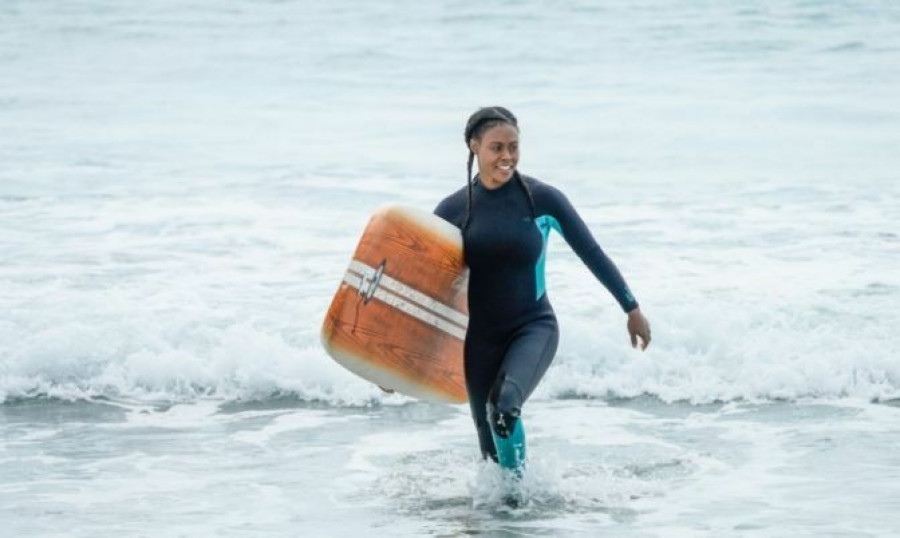
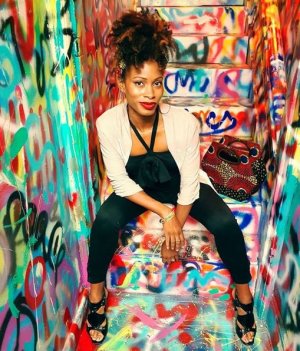 By
By 




